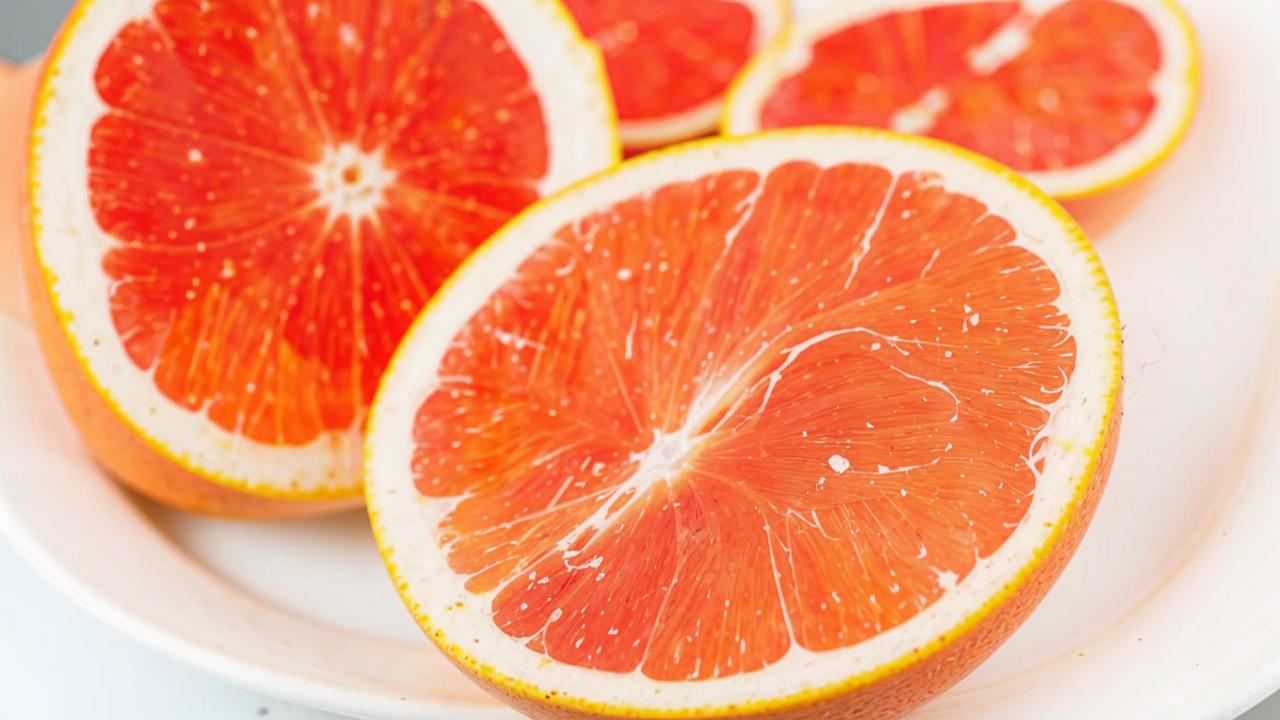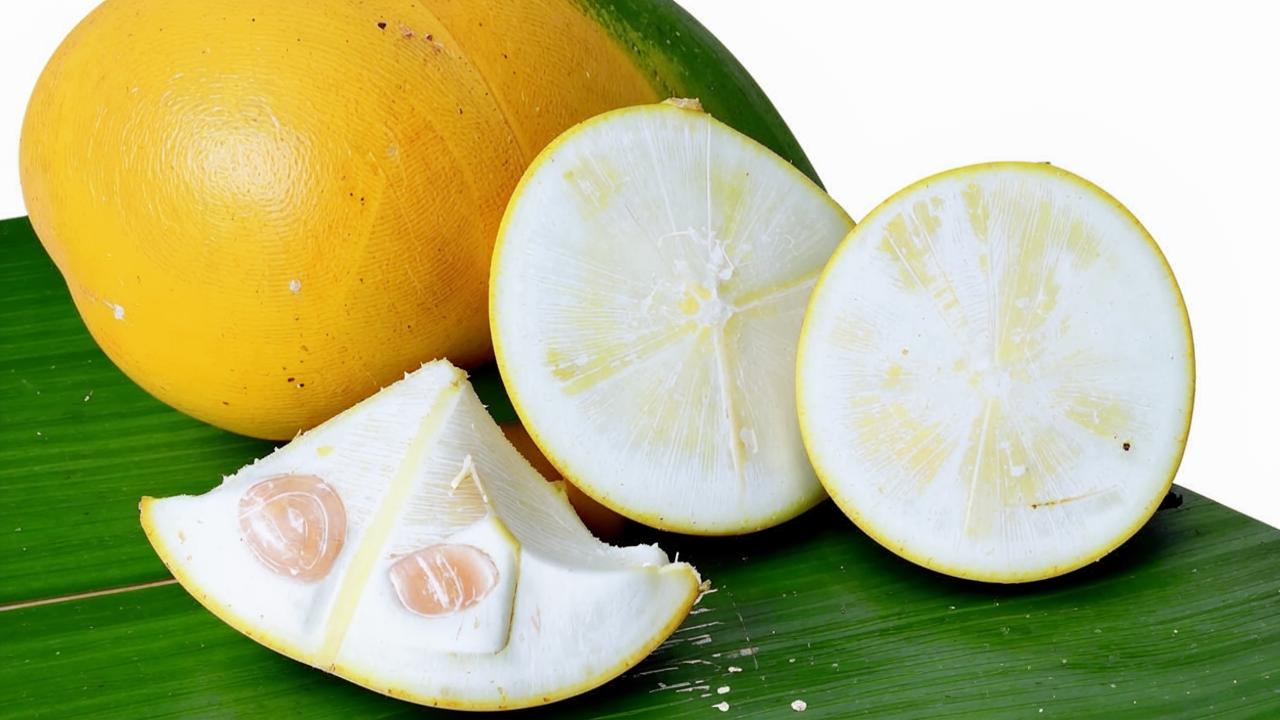
“Health food stores offer a large selection of exotic fruits. These include citrus fruits, which attract not only aroma and flavor, but also high nutritional value, useful properties, an abundance of nutrients and biologically active substances. And one of these products is pomelo. What it is useful, we will analyze in this article.
What is pomelo?
Pomelo is a relative of the grapefruit. This is the largest fruit among citrus fruits. It is quite juicy and is characterized by a low acid content. There are several varieties of the fruit, and there is even a pink-colored fruit of the Tong Di variety, which combines the taste of grapefruit with notes of lime and jasmine.

The pomelo ripens from December through March. It is actively cultivated in China, Japan, India, Indonesia, Israel, American California and the Caribbean.
Calories (calories/protein/fats/carbohydrates) of pomelo per 100 g: 38/0.76/0.04/8.62.
What is useful pomelo
Pomelo refers to citrus fruits, the use of which has a lot of beneficial properties for the body. However, the composition, content of nutrients and biologically active substances differ depending on the variety. Among the common positive effects, the following can be emphasized;
contains vitamin C. The human body is unable to synthesize it independently, so this vitamin must be obtained with products. Ascorbic acid plays a key role in the functioning of the immune system and the synthesis of collagen, the building material of all connective tissues.

In addition, vitamin C takes part in redox reactions, is necessary for protein synthesis, including in the walls of blood vessels. Excellent sources of it are citrus fruits, including pomelo, dark leafy greens, broccoli, cauliflower, green and red peppers, strawberries, tomatoes and potatoes;
provides muscle growth. People who consume adequate amounts of vitamin C found in citrus fruits, berries and vegetables have better skeletal muscle mass.
As an antioxidant, vitamin C helps protect muscle tissue from the destructive power of free radicals (harmful substances). This is especially important for older adults, as they tend to lose stamina and strength, which contributes to weakness and reduced quality of life;
Reduces the risk of obesity. Adequate consumption of fruits and vegetables can protect against genetic predisposition to obesity. Among the foods that suppress genes that increase the risks of gaining excess weight are citrus fruits, berries and green leafy vegetables;
contains bioflavonoids. Bioflavonoids act as antioxidants and help prevent chronic diseases such as heart disease, neurological disorders and digestive diseases. They are found in citrus fruits, berries, grapes and green tea.
Flavonoids include:
- Rutin – prevents bruising and swelling and strengthens blood capillaries, promising in the prevention and treatment of venous diseases of the legs. Can block the production of histamine – a substance responsible for allergic reactions in the body;
- naringenin – blocks DNA damage in cells and the production of glucose by the liver, helping to regulate blood sugar levels. It also has antioxidant and anti-inflammatory properties;
- hesperidin – helps reduce the risk of cardiovascular disease, prevents arterial blockages, improves the conductivity and elasticity of blood vessels, helping to reduce high blood pressure.
How to store pomelo
For storing pomelo and other citrus fruits, aluminum foil is not suitable: this can lead to the fact that they acquire a metallic taste. Therefore, it is better to give preference to plastic packaging.
Unpeeled pomelo is stored in the refrigerator for 10-14 days. If you want to keep freshness and flavor for a longer period of time, you can freeze it. To do this, cut the fruit into pieces and place them in freezer bags.

How to peel a pomelo
- Cut off the “top” of one end of the pomelo.
- Make vertical incisions down the sides of the pomelo.
- Separate the pulp from the peel, starting at the edge and moving toward the center.
Contraindications
Pomelo should be excluded from the diet of people who are allergic to citrus fruits, serious kidney and liver diseases. Also, this fruit should not be consumed with stomach problems (gastritis, peptic ulcer) and 12-peritoneum.





